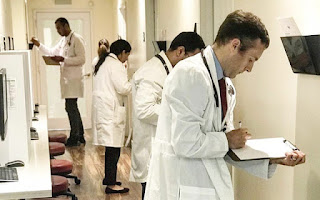Medical Residency Training Timeline

Not sure whether you should enroll in medical residency training in New York ? When applying for your dream residency training, there might be tons of questions that pop up in your mind - When is the right time to apply for an externship? How do you write your personal statement? When do you submit ERAS applications? Well, you have just landed on the right page as we have answers to all your questions. This information can help you get prepared for the medical field and excel. Here is the timeline of medical residency training - June: Start researching for your program and register on MyERAS. July: Compose your personal statement and work on writing your application. August: Edit and review your application with mentors and Residents Medical and start preparing for your interview. September: Now is the time to apply for residency programs. But keep preparing for your interviews. October: Beginning of the interviews as applications are under review. November: NRMP int
